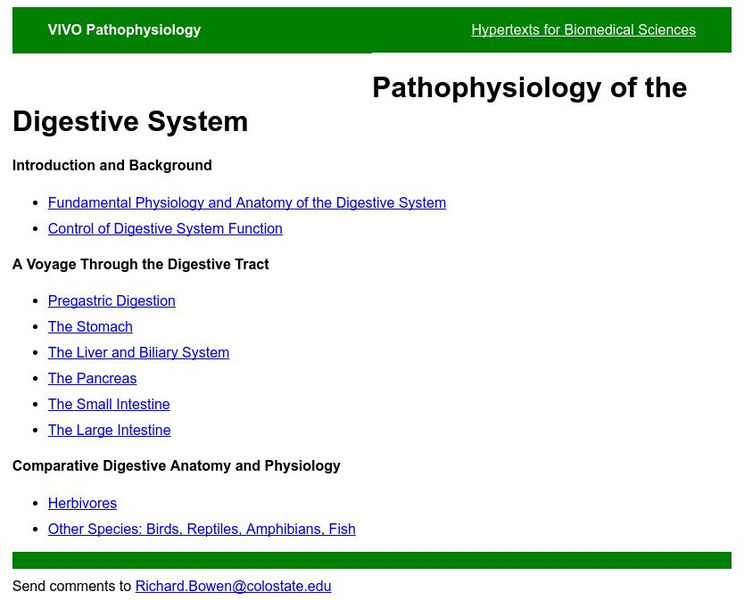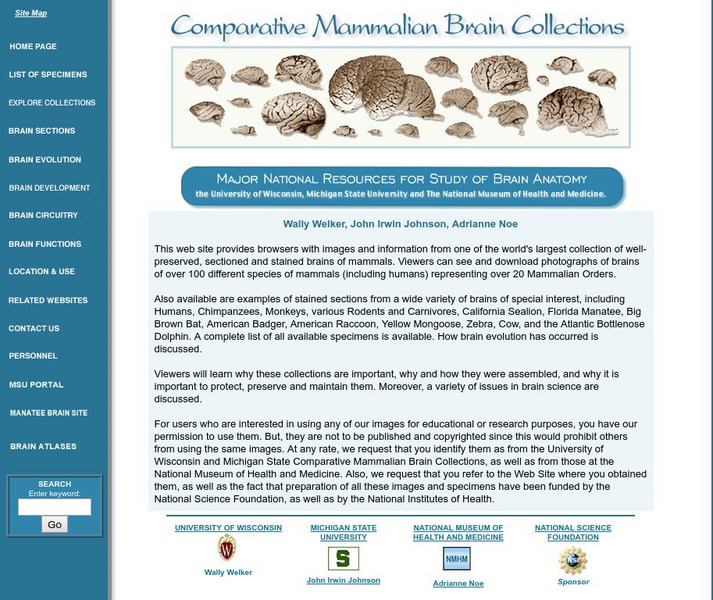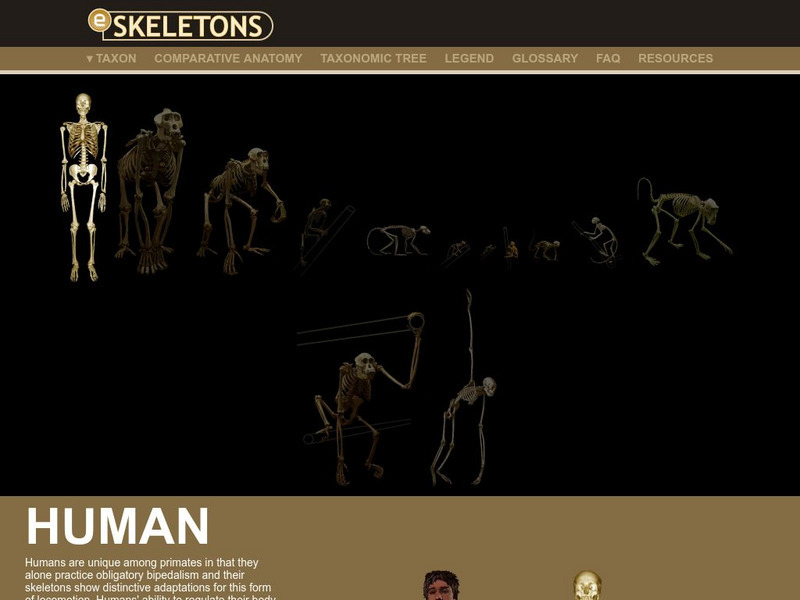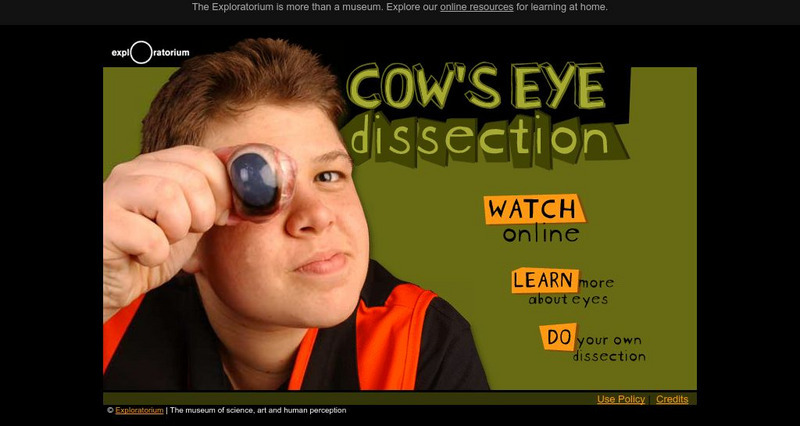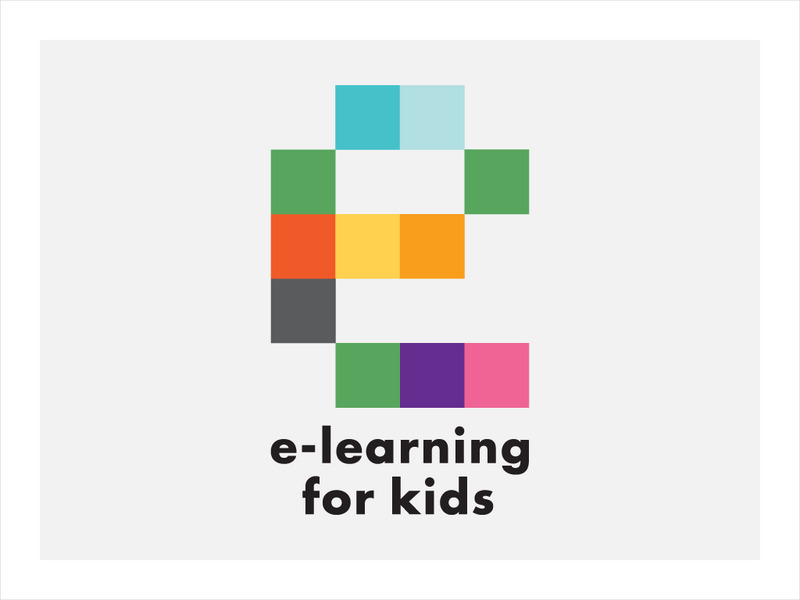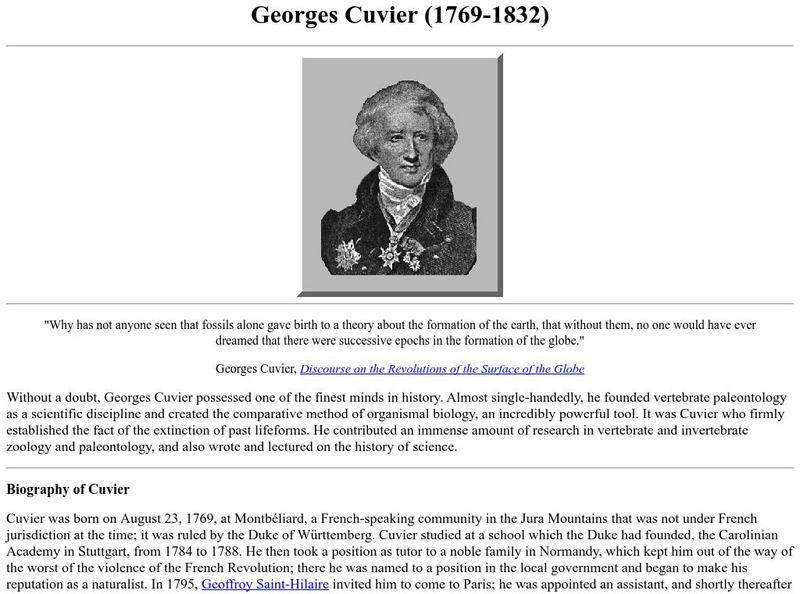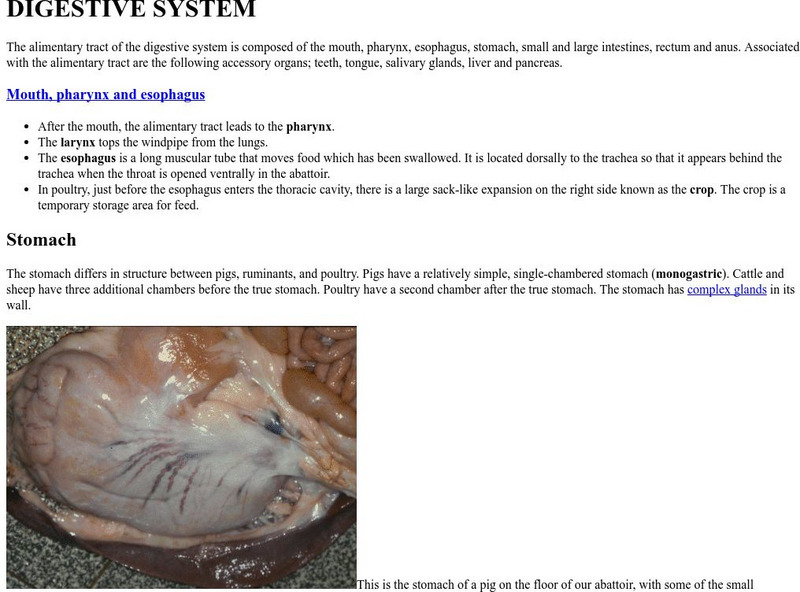Curated OER
Evidence for Evolution
In this evidence of evolution worksheet, students review notes given by referring to the Nelson Biology text, chapter 11/13. Students read the notes and the specified pages in the text.
PBS
Pbs Learning Media: Tetrapod Limbs
This illustration from Evolution by Monroe W. Strickberger shows the remarkable similarities between the bones in the forelimbs of various tetrapods, all of whose limbs serve very different functions.
PBS
Pbs Learning Media: Bird Food and Bird Beaks
There are almost as many types of bird beaks as there are types of food that birds like to eat. This collection of images shows a wide range of beaks and the types of foods handled by each.
PBS
Pbs Learning Media: Living and Nonliving
What is it that distinguishes a living organism from a nonliving object? This collection of images presents examples that aren't as clear-cut as one might think, enticing students to question the meaning of life.
PBS
Pbs Learning Media: Molecular Clocks: Proteins That Evolve at Different Rates
In this graphic and article from "The Human Evolution Coloring Book" by Adrienne Zihlman, four different proteins from humans and horses are compared and the reasons each protein evolves at its own characteristic rate are discussed.
PBS
Pbs Learning Media: Seeing Through Camouflage
This interactive feature from the NOVA: "Leopards" Web site presents a wide variety of ways in which animals use coloration to their advantage.
PBS
Pbs Learning Media: Bird Beak Gallery
This collection of images of ten different birds illustrates the diversity of bird beaks.
Stanford University
Stanford University: Sea Urchin Development: Core Lab Exercise
See sea urchins as they develop. A complete set of instructions for a lab in developmental biology. Excellent supporting material is provided, including troubleshooting information.
Colorado State University
Colorado State: Pathophysiology of the Digestive System
A site on the disorders of the digestive system and on the similarities and differences between the digestion of birds and ruminants.
Other
National Museum of Health and Medicine: Comparative Mammalian Brain Collections
This resource could be used for higher level biology or anatomy classes. There are over 100 different species of mammals represented and each has information about physical characteristics, distribution, and pictures of the brain. There...
Eastern Kentucky University
Eku: Comparative Vertebrate Anatomy Skeletal System
Lecture notes and diagrams about the skeletal system. Also includes a link to more lecture notes.
eSkeletons
E Skeletons Project
Funded by the National Science Foundation, the eSkeletons Project provides interactive views of bones. Various menus allow you to review the bones of the human skeleton and compare them to the bone structures of nine primates.
Howard Hughes Medical Institute
Hhmi: Bio Interactive: Explore Your Inner Animals
Did you know parts of our body was inherited from distant animal ancestors? In this interactive students will investigate different anatomical features of the human body to reveal our evolutionary history. Learn how humans share...
PBS
Pbs Learning Media: Shark Attack! The Hunt
This interactive module from the NOVA: "Shark Attack!" web site details the six senses that sharks use to find and capture their prey.
PBS
Pbs: Dissection101: Dissection Resources for Classroom Use
A collection of lesson plans, quizzes, and educational videos developed for online dissections. The site hopes to improve the learning experience for students, and increase the quality of the dissection experience. Organisms included are...
Exploratorium
Exploratorium: Cow Eye Dissection
Get your lab coat ready! This particular lab experience is a must for any middle or high school biology/anatomy lab science classroom. This site provides a printable version of a cow's eye diagram, a step-by-step dissection guide, a...
E-learning for Kids
E Learning for Kids: Science: Center of the Atlantic Ocean: Animals and Their Senses
Captain Ed Smith and his dog, Rocco, are exploring all the amazing senses animals have. Join him and discover with them.
PBS
Pbs Learning Media: Night Vision
This interactive feature from the NOVA: "Leopards of the Night" Web site highlights the nighttime habits and abilities of a wide range of nocturnal creatures.
University of California
Ucmp: Georges Cuvier
This site from the University of California, Berkeley offers a biography of George Cuvier. Scientific ideas of George Cuvier are presented, such as those related to comparative anatomy, fossils, the idea of extinction, and others....
University of Guelph
Department of Animal and Poultry Science: Digestive System
The main focus here is on the comparative anatomy of animals raised for meat. Beware of the photographs, as they are dissection photos.
University of California
Ucmp: Inferring the Possible Speed of Dinosaurs
An essay detailing the evidence used to determine how quickly dinosaurs moved. Includes pictures of fossilized dinosaur tracks.
Estrella Mountain Community College
Online Biology Book: The Modern View of Evolution
Take a closer look into the modern view of evolution. This article includes many pieces of evidence, all which support the theory of evolution.
Other
University of Scranton: The Sheep Brain Dissection Guide
This resource provides a guide to dissecting sheep brains. The guide goes through the process step by step. An image of the brain being dissected is shown with dissection instrutions or details on the particular structure on each page.
Other
Plant and Animal Evolution: Homology
In this informative site, homologous is defined and the wings of birds and bats are compared to clarify the concept.





